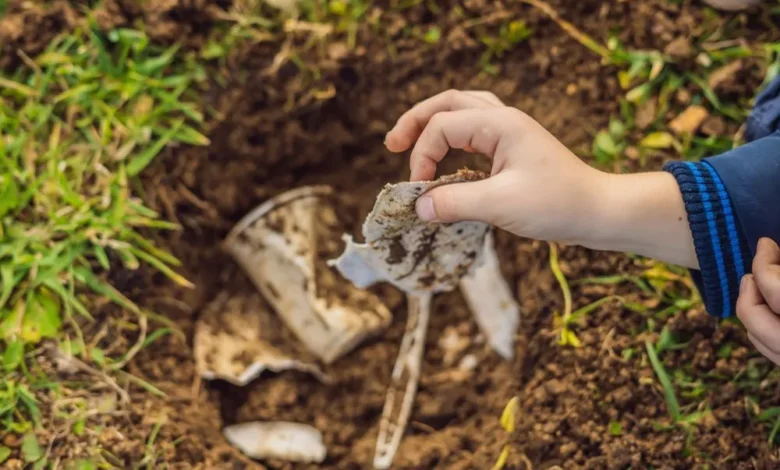The Science of Biodegradability: Why It Matters

Biodegradability is more than just a buzzword; it’s a critical component of our endeavor to protect the environment. By understanding the concept and application of a biodegradability test, industries and consumers can make more informed decisions about the kinds of products they use and produce. But what makes biodegradability so essential, and how does it work?
In our daily lives, we come across numerous products labeled as biodegradable. These products promise a lesser impact on our planet by decomposing naturally over time. However, to make the most of these benefits, it’s crucial to learn about the science behind biodegradability, its processes, and its profound environmental impacts. Understanding these elements helps foster a more sustainable approach to consumption and waste management.
Biodegradability Basics
Biodegradability refers to the capability of organic substances to be decomposed by natural elements, primarily microorganisms like bacteria and fungi. In essence, the term “biodegradable” refers to an object’s ability to decompose into organic materials like compost, carbon dioxide, and water. This process is crucial for maintaining ecological balance and reducing environmental pollution. By opting for biodegradable products, we contribute to minimizing waste and promoting a healthier ecosystem.
There are varying degrees of biodegradability, often influenced by the material’s composition and environmental conditions. Some materials may take a few weeks to biodegrade, while others can take several months or even years. The key factor is that these materials break down into non-toxic components that can be seamlessly reintegrated into the natural environment. This property makes them a more sustainable choice compared to traditional, non-biodegradable materials.
How Biodegradation Works
The process of biodegradation involves several steps carried out by microorganisms. First, these tiny organisms consume organic materials as a source of energy. They break down complex compounds into simpler, more natural forms. This process not only helps to reduce trash but also adds vital nutrients to the soil. Various factors impact the rate and effectiveness of biodegradation, including the material’s composition, environmental conditions, and the presence of specific microorganisms. For example, increased humidity and warmer temperatures can hasten the decomposition process and improve the efficiency of biodegradation. Conversely, colder climates may slow down the process, requiring more time for the materials to break down. Therefore, understanding these factors can help design more effective waste management practices.
The Importance of Biodegradable Products
Biodegradable products have recently taken center stage as a sustainable alternative to conventional materials. These products break down faster and reduce waste accumulation, lessening the burden on landfills and decreasing pollution levels. Biodegradable materials often degrade more quickly than standard polymers, which can take millennia to do so. They become a more eco-friendly choice as a result, protecting our world for coming generations. Landfills, filled with non-biodegradable waste, often produce significant methane emissions, contributing to climate change. In contrast, biodegradable products facilitate a more natural decomposition process, thereby mitigating these harmful emissions. Moreover, using biodegradable products can inspire industries to develop more eco-friendly technologies and processes, further promoting environmental sustainability.
Current Research and Advancements
Research in the field of biodegradability is continuously evolving. Scientists and environmentalists are focused on improving existing biodegradable materials and developing new ones. These advancements offer promising solutions to some of our most pressing environmental issues. Innovations like biodegradable polymers are setting the stage for a future where plastic waste could be dramatically reduced. Discover more about these advancements at National Geographic.
Additionally, researchers are investigating ways to enhance the efficiency of biodegradation processes. For example, by engineering specific strains of bacteria, scientists can potentially speed up the decomposition of more resistant materials, paving the way for quicker waste management. These developments demonstrate how biotechnology can be used to solve environmental problems and build a more sustainable future. We may anticipate seeing even more creative approaches to effective and efficient waste management as research advances.
Environmental Impact
The environmental impact of using biodegradable products is substantial. These products not only reduce the volume of waste but also enhance soil health by adding organic matter back into the ecosystem. This organic matter can improve soil texture, increase nutrient availability, and boost the overall health of the environment. By enriching the soil, biodegradable products support plant growth, promote biodiversity, and contribute to a balanced ecosystem.
Moreover, promoting the use of biodegradable materials can help avert the negative effects of plastic pollution in oceans and other ecosystems. Marine life, for instance, suffers drastically due to plastic waste, leading to alarming rates of mortality and habitat disruption. By shifting to biodegradable alternatives, we can protect marine biodiversity and maintain ecological balance. Furthermore, biodegradable products can reduce the risk of chemical leachate contaminating water sources, ensuring a cleaner and safer environment for all living organisms.
Conclusion
In conclusion, the science of biodegradability holds paramount significance in our quest for environmental sustainability. Through understanding the principles of biodegradation and the impact of biodegradable products, we unveil pathways toward a greener, healthier future. Biodegradability offers a tangible solution to the mounting challenges of waste management and pollution. By embracing biodegradable materials, we not only lessen our ecological footprint but also foster a more harmonious relationship with our planet.
Current research and advancements in biodegradability underscore the potential for transformative change. From innovative materials to enhanced decomposition processes, science continues to offer promising avenues for mitigating environmental degradation.
Moreover, the widespread adoption of biodegradable products stands as a beacon of hope, signaling a collective commitment to safeguarding our ecosystems and preserving biodiversity. In essence, the science of biodegradability transcends mere scientific inquiry; it embodies a paradigm shift towards sustainable living. By championing biodegradability, we pave the way for a future where environmental stewardship is paramount, ensuring a legacy of resilience and vitality for generations to come.



